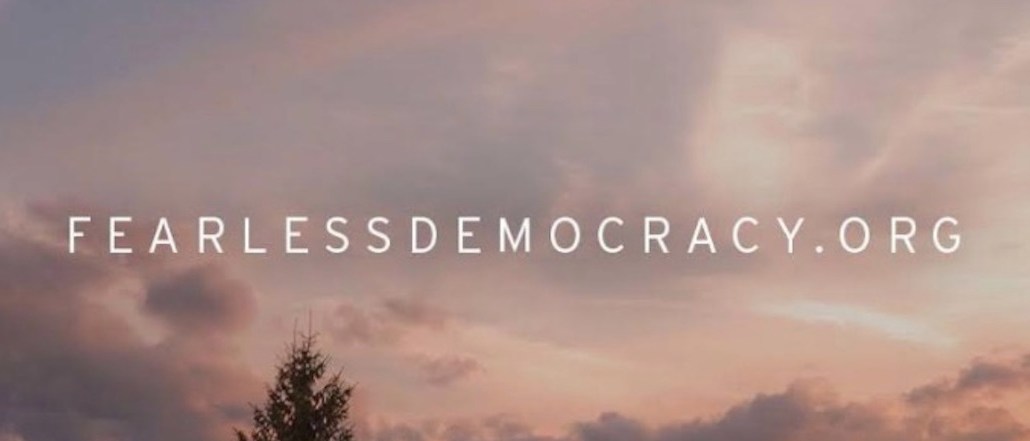Save 50% on a 3-month Digiday+ membership. Ends Dec 5.
‘We need to fix the pipeline’: One marketer’s crusade against funding fake news


It is relatively simple for a website that spreads lies to make money. But in an era of automated advertising, marketers’ awareness of where their online ads may appear can be patchy at best — particularly in markets that are less advanced than the U.K. and U.S. in programmatic trading, like Germany.
And yet even cautious marketers face a backlash risk: Last month, Gerald Hensel, a senior strategist at German advertising agency Sholtz and Friends, launched a campaign called “No Money For Right” on his own personal blog, urging people to alert brands if their ads were appearing on fake-news sites as a result of programmatic trading. The idea was to alert brands to the issue, so they can then make their own choice.
The hashtag was soon trending on Twitter, and Hensel found himself at the center of a digital media “shit storm”: Over the course of 10 days, Hensel received between 50 and 60 death threats. His former employer and its clients also received threats, and Hensel was forced to resign to quell the onslaught.
We spoke to Hensel to hear more about the state of play in Germany and his next digital initiative, “Fearless Democracy.”
Excerpts lightly edited for clarity.
So what happened?
It is important to say that this was my personal idea, not that of my employer. Like many others, I had a wake-up call from Brexit and the election of Trump. After setting up the “No Money for Right” campaign, a campaign was then set up against me by people who call themselves conservative bloggers that targeted myself, my former employer and the German government, and which pretended that we were involved in a conspiracy against the free press. And that I was part of a multidimensional attempt to bring down free speech. So for 10 days, I was at the center of one of the biggest shit storms around a private person in Germany.
And that’s why you resigned?
Yes. My employer was very supportive, despite it being a difficult time for them because they received thousands of hate messages and about a dozen clients were boycotted by additional media. The marketing heads of clients, even if they were only loosely associated with my former employer, were targeted also with hate mail. For 10 days both my former employer’s board and their PR department were working 24/7 responding to it. Two or three articles were published a day, all aimed at bringing me down. And I realised it wouldn’t stop until I left the company, because if I was just an individual the amount of hate levelled would have been very different. This was an orchestrated attack.
Ad position: web_incontent_pos1
But your campaign was to raise awareness of how these sites make money?
Yes. One of the key reasons why some of these sites can operate is because they are getting money from big brands, which are not even aware they are pumping budget into populist or even right-wing websites. It’s quite simple — if oil is dripping out of a pipe into a lake and people start complaining and questioning why the lake is polluted, the solution is clear: Fix the pipeline. And it’s the same with programmatic. We need to fix the pipeline.
Are marketers there more aware of how these sites are funded, after what happened last month?
Perception of the problem is growing, and that is what I want to continue growing. There are other engaged digital experts in the U.S. that have done a lot to help move brands away from sites like Breitbart. But of course Breitbart is just one of many things happening. The problem in Germany is we have very important elections coming up. And since Trump has become President you can clearly see how these hate storms have increased in Germany. One element of this is the constant staging of fear and anger using a mix of agenda-setting fake news. There is a word now — Lugenpresse — which means the lying press. That’s how these people describe mainstream media now.
You changed the campaign from #NoMoneyForRight to #StopHatevertising. Why?
Because it is not about left or right, it’s simply about stopping people putting budgets into hate. This is what the paid media and advertising world must realise — that they and their budgets are responsible for things that they may not like, and that are potentially harmful for their business interests.
You have a new project too, called “Fearless Democracy.”
I’m working with a number of friends who have a mix of marketing, PR and political backgrounds, and we’re trying to build an NGO, starting in Germany, but with plans to extend it globally, at least to English-speaking nations. One side of our NGO will be to help people that face similar attacks, and give them support and advice on how to deal with it. Also, we’re trying to bring into the public eye the mechanics behind digitally enabled political violence. We are trying to understand how shitstorms work and who is behind them. We are already collaborating with many experts on that field. We already started being active on social media and launch our first project “The Wave” where we aggregate news on populists, right wingers and their attempts to erode our democracies. In March, we want to launch our website and our first bigger project in support of shitstorm victims.
More in Marketing

Ulta, Best Buy and Adidas dominate AI holiday shopping mentions
The brands that are seeing the biggest boost from this shift in consumer behavior are some of the biggest retailers.

U.K. retailer Boots leads brand efforts to invest in ad creative’s data layer
For media dollars to make an impact, brands need ad creative that actually hits. More CMOs are investing in pre- and post-flight measurement.
Ad position: web_bfu